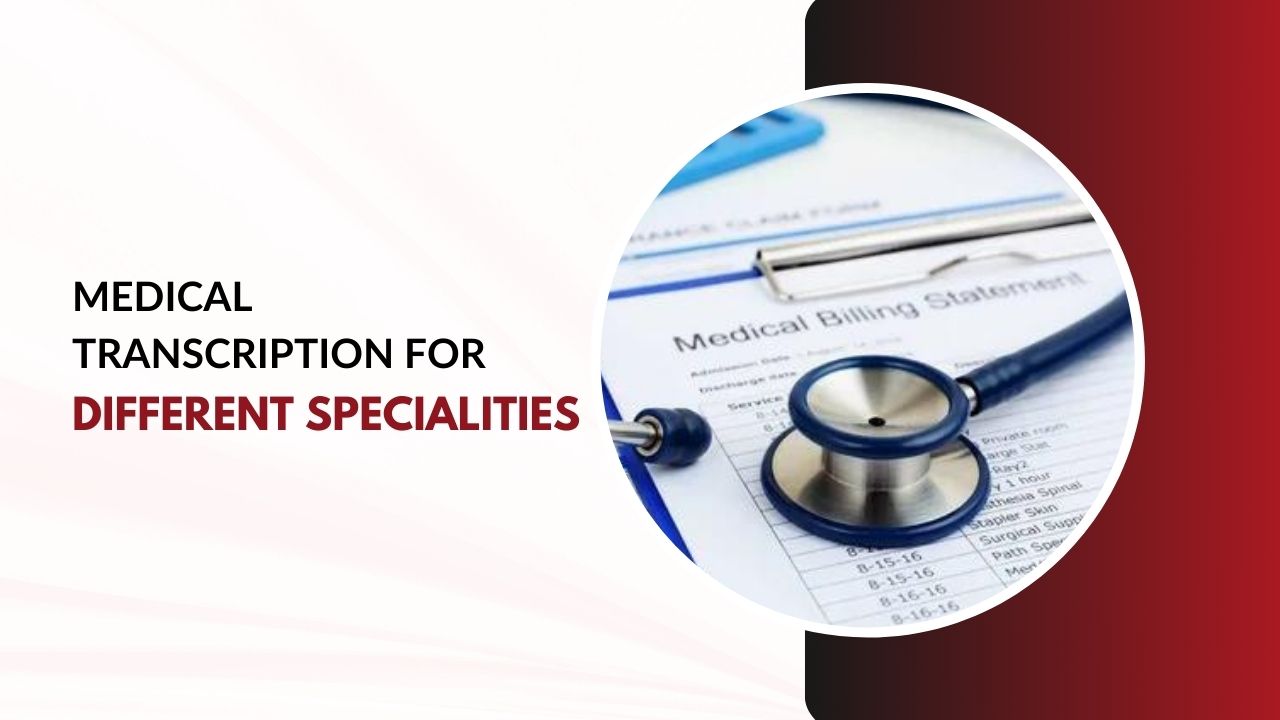Medical transcription is a crucial aspect of healthcare that involves converting spoken words of healthcare professionals into written documents. These transcribed documents serve as essential records of patient interactions, diagnoses, and treatment plans. What makes medical transcription fascinating is its versatility, as it adapts to the needs of various medical specialties, including cardiology, oncology, and pediatrics.
Cardiology: The Heart of Precision
Cardiology, the branch of medicine dedicated to the study and treatment of heart-related diseases, demands precise and accurate documentation. Cardiologists rely on medical transcription to create detailed records of patient histories, physical exams, diagnostic tests, and treatment plans. Accurate transcription in cardiology is paramount since the slightest error can have severe consequences for patients.
Oncology: The Battle against Cancer
Oncology focuses on the diagnosis and treatment of cancer. Given the complexity of cancer treatments, transcription plays a vital role in documenting chemotherapy regimens, radiation therapy plans, and surgery details. Accurate transcription ensures that oncologists have clear records for making critical decisions and monitoring patients’ progress.
Pediatrics: Caring for the Little Ones
Pediatrics, the specialty centered on the health of children, relies on accurate transcription for a wide range of documents. Pediatricians use transcription for well-child check-ups, vaccination records, growth charts, and developmental milestones. Precision is essential, as any errors can impact the care provided to young patients.
Orthopedics: The Backbone of Mobility
Orthopedics focuses on musculoskeletal health, addressing issues related to bones, joints, muscles, and ligaments. In this specialty, medical transcription plays a pivotal role in documenting surgeries like joint replacements, fractures, and spinal procedures. Precise records are essential for tracking patients’ progress and ensuring their continued mobility.
Dermatology: Unveiling Skin Health
Dermatology is dedicated to diagnosing and treating skin conditions, from rashes to skin cancer. Transcriptionists in dermatology create records for patient consultations, detailing skin examinations, recommended treatments, and any necessary biopsies. Clear and accurate transcriptions assist dermatologists in monitoring skin conditions and making informed decisions about patient care.
Gastroenterology: The Digestive Experts
Gastroenterology deals with digestive system disorders, making accurate documentation crucial. Transcriptionists help gastroenterologists record endoscopy and colonoscopy findings, biopsies, and treatment plans. Detailed transcriptions are essential for tracking gastrointestinal issues and evaluating the effectiveness of treatments.
Neurology: Unraveling Brain Mysteries
Neurology is dedicated to understanding and treating disorders of the nervous system. In this specialty, precise documentation is vital for documenting neurological examinations, EEG reports, and brain imaging results. Accurate transcriptions support neurologists in diagnosing conditions such as epilepsy, multiple sclerosis, and Parkinson’s disease.
Obstetrics and Gynecology: Nurturing New Life
Obstetrics and gynecology are concerned with women’s reproductive health, from pregnancy and childbirth to general gynecological care. Medical transcriptionists are essential in recording prenatal visits, labor and delivery details, and surgical procedures like hysterectomies. Their work ensures that expectant mothers receive the best care possible and that gynecological issues are accurately documented.
The Art of Medical Transcription
Medical transcriptionists are skilled professionals who specialize in converting spoken words into written records. They use a combination of manual typing and speech recognition software to ensure accuracy. Transcriptionists must be well-versed in medical terminology, understanding the nuances of different medical specialties.
Accurate medical transcription is vital for:
Patient Care: Transcribed documents serve as a crucial reference for healthcare professionals, ensuring that patients receive the best care possible.
Legal Documentation: In the event of medical disputes or legal matters, transcribed records can serve as crucial evidence.
Insurance Claims: Insurance companies rely on accurate records to process claims and ensure that healthcare services are appropriately compensated.
The Role of Technology
While human transcriptionists are vital, technology has also played a significant role in medical transcription. Medical transcription softwares have improved efficiency and reduced turnaround times for transcribed documents using speech recognition technology. Still, human transcriptionists are often needed to review and correct errors, especially in specialized medical fields.
Conclusion
In the world of healthcare, medical transcription is a behind-the-scenes hero, ensuring that healthcare professionals can deliver the best care to their patients. Transcriptionists play an invaluable role in various specialties, like cardiology, oncology, and pediatrics, orthopedic surgeries, the subtleties of skin health in dermatology, or the complexities of neurological diagnoses, transcriptionists help healthcare professionals provide the best care possible.
Their precise records aid in monitoring patient progress, supporting legal documentation, and processing insurance claims. As technology continues to advance, the combination of human expertise and innovative tools ensures that medical transcription remains a cornerstone of healthcare, enhancing patient care and the overall quality of medical services.
Also Read:




